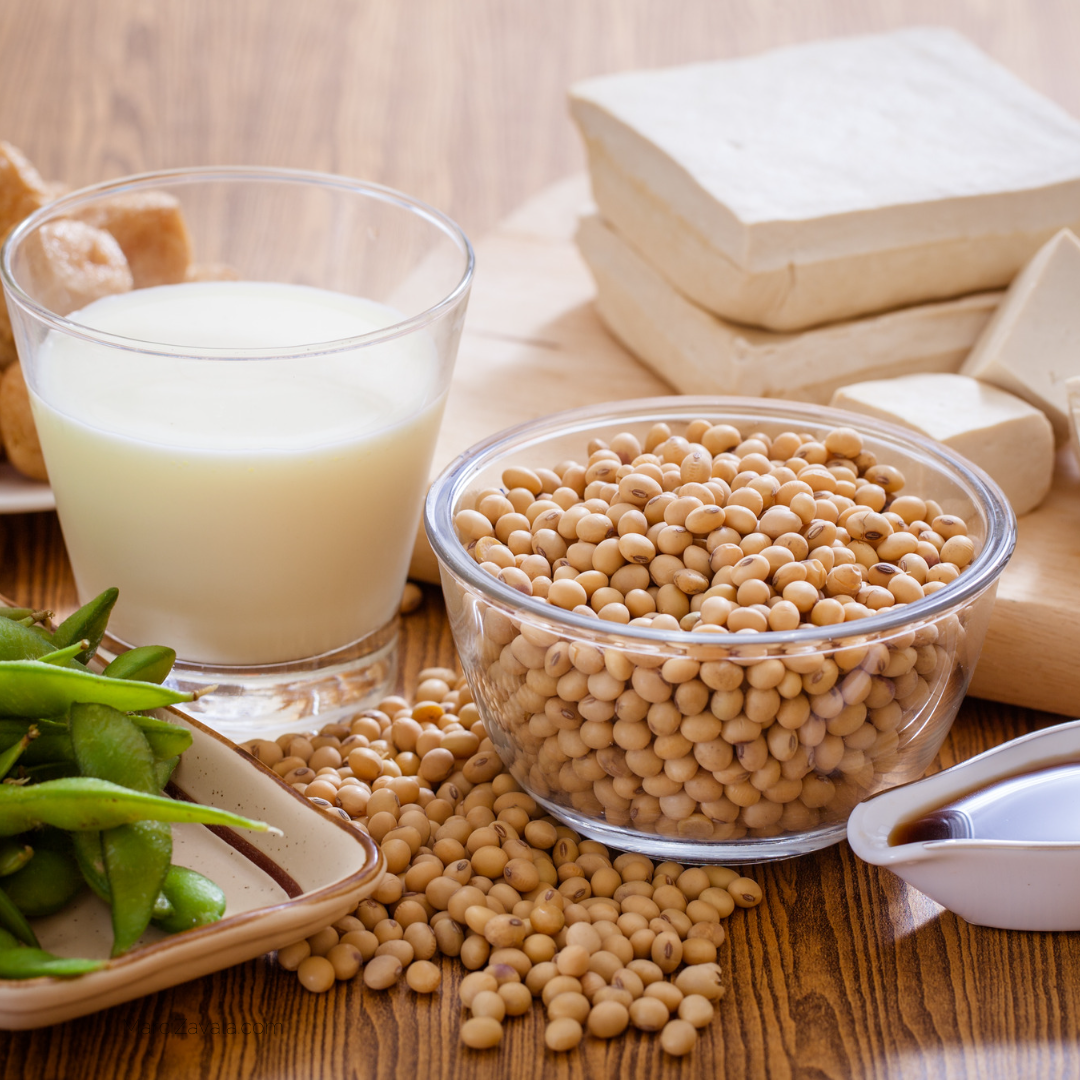Soy is a popular milk substitute or animal protein alternative, but is it safe and healthy? What is soy? Soy is a legume native to Asia. It is consumed in fermented and non-fermented forms. Non-fermented = soymilk, tofu, and nuts (edamame) Fermented = miso (soup)
Soy is a popular milk substitute or animal protein alternative, but is it safe and healthy?
Soy, a legume indigenous to Asia, has gained popularity as a milk substitute and alternative source of animal protein. However, its safety and health benefits have been called into question. Soy can be consumed in non-fermented forms such as soymilk, tofu, and nuts (edamame) or fermented forms such as miso and tempeh. It is important to note that not all soy is created equal.
Studies have linked soy consumption to numerous health benefits, including a healthy heart, lower cholesterol, lower blood sugar, fewer menopause symptoms, and a lower incidence of certain cancers. Soy is rich in isoflavones, a subcategory of polyphenols believed to have health benefits. However, the amount of soy required to derive these benefits is often far beyond what is safe for consumption.
Soy’s benefits for reproductive health are mixed, with some studies suggesting an improvement in fertility in women, while others indicate a decrease in ovarian function and reproductive hormones. This may be because soy contains anti-nutrients, which can lead to decreased gut function, increased breast cancer risk, decreased thyroid function, and a feminizing effect on men and boys. In addition, soy formula has been found to influence a baby’s developing brain in a way similar to being fed exogenous estrogen.
It is essential to understand how your body reacts to soy, particularly if you have a family history of cancer or thyroid dysfunction. If you choose to consume soy, it is important to do so in moderation and opt for fermented or minimally processed soy products. While there is some research suggesting soy’s potential health benefits, further study is needed.
References:
Polyphenol Content and Antioxidant Properties of Colored Soybean Seeds from Central Europe
Pub Med – Soy and Menopause Symptoms
Role of Fermentation in Improving Nutritional Quality of Soybean Meal
The Truth About Cholesterol by Dave Feldman
Resveratrol: How Much Wine Do You Have to Drink to Stay Healthy?

Comments